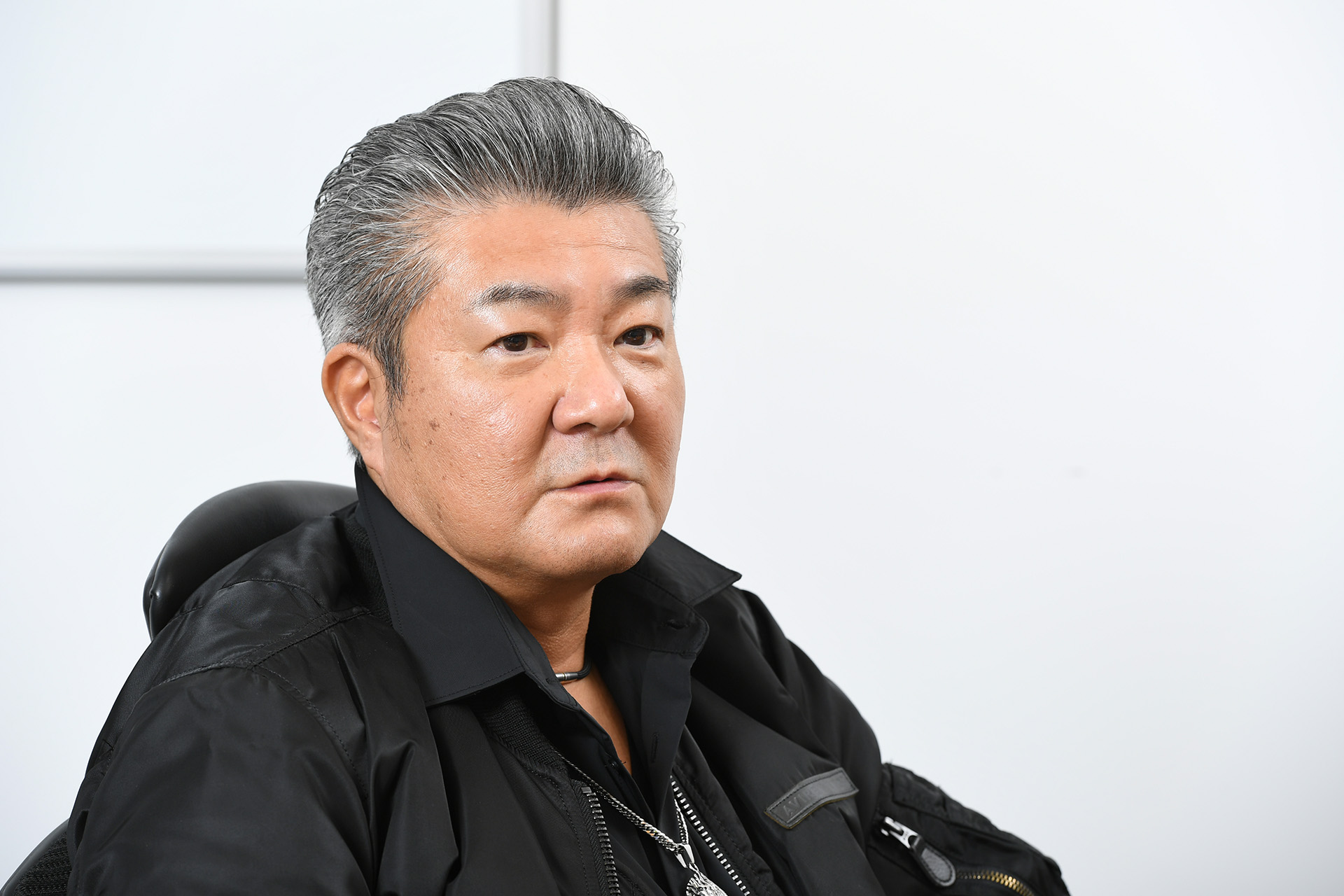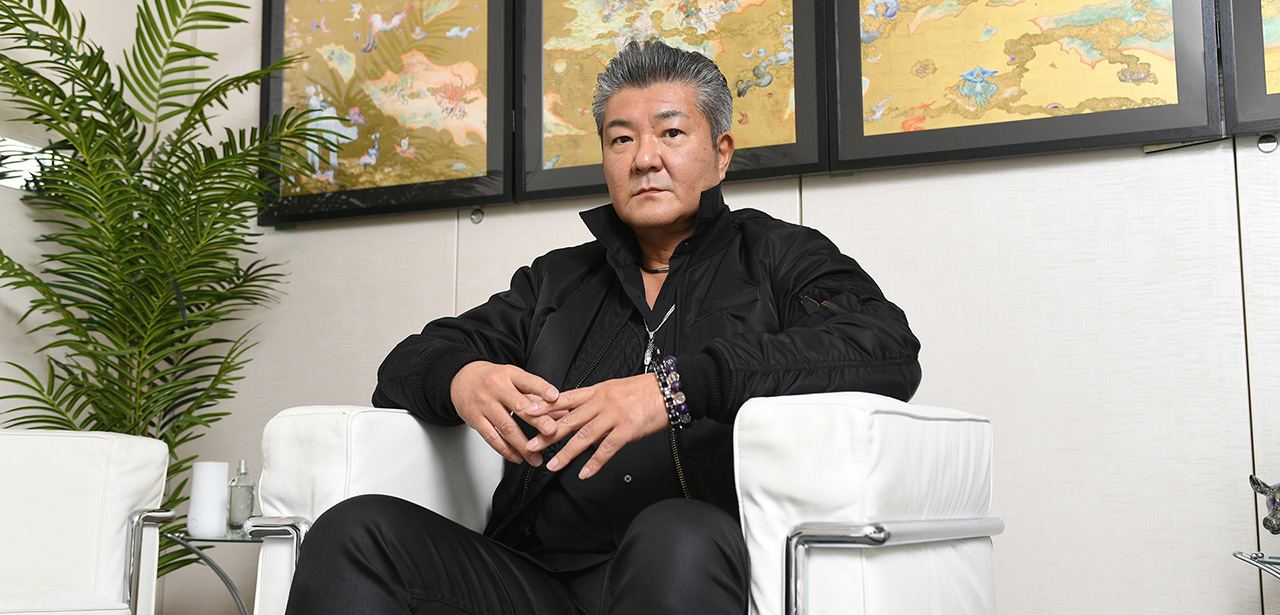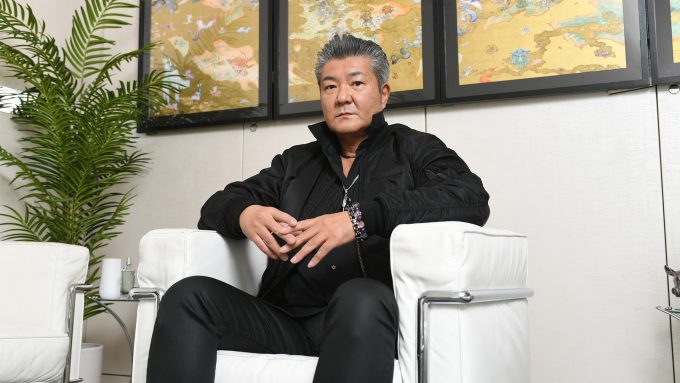WE GREW VANA’DIEL is a series of interviews with those who were involved in the development of FINAL FANTASY XI (FFXI), as well as guests from other companies. In this installment, we interviewed Koichi Ishii, the original Director of FFXI who breathed life into the fantasy world of Vana’diel. In this fourth and final part, he talks about the passion he poured into developing FFXI and what the game means to him as a developer.
* To differentiate between the FINAL FANTASY series and its first title of the same name, in this article, we will be referring to the first title in the series as “FFI.”

CEO of Grezzo Co, Ltd. In the early days of Square, he planned FFI and was in charge of game design until the third game in the series. After that, he worked on the direction of the Mana series and other projects before returning to the FF series to work on FFXI. In addition to creating the foundation for the world of Vana'diel, he was also the director leading up to the Rise of the Zilart expansion.
A harsh world where everyone can be kind
Mr. Ishii, was there anything you paid specific attention to when designing FFXI?
- Ishii
From the beginning of development, I sought to create a harsh environment where people would instinctively feel compassion for others. How they would perceive “death” (getting KO’d) was crucial in achieving that environment, and that’s where the EXP penalty came into play. Many MMORPGs at the time featured a hefty EXP penalty on death and our team was certainly privy to that trend, but for me, the important part was the perception and sensation that came with the penalty.
I was convinced that the fear of getting KO’d would further emphasize a sense of thrill and desperation, which in turn, would turn dramatic events with allies and the triumph of overcoming hardship into unforgettable memories of adventure. I remember how terrified I was of leveling down as I meekly explored dungeons for treasure chests. (laughs)
- Ishii
In FFXI, I wanted people to play with the mindset of “I never, ever want to die!” instead of “It’s okay if I die, I can just start over again.” If the consequences of getting KO’d are light, then players will also feel little responsibility for their own actions. In a safe environment, it’s easy to feel like other people don’t matter, and you don’t think twice about inconveniencing someone else.
Whereas those who’ve leveled down before can sympathize when someone else is hit with the EXP penalty, and those feelings motivate them to protect their friends and rush to aid anyone who needs help. Some people who’ve been through rough times are spurred by their experiences to help others.
I wanted to create an ideal world where people can be kind to others because of their own painful experiences, not one where kindness is the only thing left after eliminating everything negative. In battle, you have to look out for your party members, because if you don’t, you’d wipe out.
I wanted players to experience living in a world where people support each other without expecting something in return, rather than some self-centered notion that everything’s fine as long as you’re doing well for yourself. As you say, the cruelness of the EXP penalty may have inspired players to really take a closer look at each other.
- Ishii
In MMORPGs, players are represented by virtual avatars, so you can’t judge each other based on race, age, gender, social hierarchy, and other outwardly factors. Playing as avatars puts everyone face-to-face with each other’s inner qualities, which makes it easier to understand how others feel, and also teaches us more about ourselves through how we interact with others. I had the feeling that it’d be hard to notice those kinds of things if the world were too easygoing.
The harshness of the world wasn’t designed that way just to be mean; there was a proper reason for it. Death may be lurking around every corner, but you’d learn to value the relationships with people you encounter and also learn more about yourself through heart-to-heart interactions. I sought to create a fantasy realm where everyone acted out of the compassion in their hearts, an element that couldn’t be expressed with game data. So when interviews asked me about the theme of FFXI at the time, I answered that it was “bonds.” I saw something like that in those moments where parties are competing over the same leveling camp, but if one party was close to wiping and called for help, the other group came rushing to their aid.
- Ishii
In FFXI, everyone can be their true selves in their interactions with others, so the words “thank you” come naturally.
For instance, when a party accidentally pulled too many monsters, you’d see the paladin put themselves in harm’s way to keep everyone else alive, the white mage healing everyone at the risk of being aggro’d, and the black mage calmly casting Escape instead of scampering away to safety. And even if the paladin and white mage didn’t make it, the remaining four members would be grateful for their sacrifice.
Then when they asked around in their linkshells to see if anyone had a high-level Raise, someone would respond, immediately dropping what they were doing to rush over from far away. That was the kind of world I envisioned: one where everyone can instinctively care for each other like that. That philosophy of yours really shines through in FFXI, doesn’t it?
- Ishii
Perhaps.
You don’t gain EXP or powerful items from being nice, so for those who only cared about optimization, the EXP penalty may have only been a nuisance. But when someone helps you in a time of great need, the gratitude you felt remains as a memory for a long time, doesn’t it? Those feelings of gratitude would then be transmitted from one player to another, and I wanted to see a world where people cherished that sort of thing. I wanted to create a world where people would want to cherish those kinds of things. Then again, the person who lends a hand typically forgets all about what they did, though. (laughs) Nowadays, you can easily gain experience even if you’re solo, so I feel much less nervous about the EXP penalty.
- Ishii
That’s only inevitable, since playstyles and games are always changing with the times. The concept of an EXP penalty may not be suited for the current era, where playstyles are centered around how you enjoy the limited amount of time you have.
Was there anything you found impressive in terms of player trends?
- Ishii
I was most surprised by how there were more players than I’d expected who leveled their support job to level cap in addition to their main job. Back when I played EverQuest*, I played as a paladin and one other class, but leveling up multiple classes was rough.
* EverQuest is an MMORPG released in North America in 1999. I can see why you were surprised, since if you were doing it for the support job, you only needed to level it up to half of your main job’s level.
- Ishii
Exactly.
The support job system was something I’d suggested early on, and one of its purposes was to give players a reason to level up more than one job and allow them to party with friends who started playing later. We wanted to avoid a situation where people who want to play together on the same World couldn’t do so because of a difference in levels.
Support jobs also broadened the range of available tactics with different job combinations, and one of the ideas behind that was to allow parties to compensate for a lack of certain roles, albeit in small ways. And even when there were multiple players of the same job in a party, the support job they chose allowed them to personalize and distinguish themselves from one another.
We wanted to encourage ingenuity among the players by providing them with customization options which also affected party strategy. It also led to players experiencing a variety of jobs, and some of us were even inspired to change our main job.
- Ishii
That was also part of my aim.
For instance, warrior mains know what their job is good at, where it falls short, and what kind of support would make them happy, right? You can’t really understand that sort of thing until you experience it for yourself. Should you choose to level white mage as your support job and try it out, you can then understand how a white mage might feel even when you’re playing warrior.

FFXI is Mr. Ishii's graduation project
What do you think of FFXI’s role in the history of video games?
- Ishii
Creating an in-game world doesn’t mean just preparing pictures of different looking landscapes like a stage set. You have to create an environment where people can perceive a solid purpose. I feel that this attitude has spread and strengthened among developers.
The monsters in FFXI have various sensing abilities, such as sight, hearing, smell, and magic. These were my idea and developed by the entire team, but I think they help us to get a sense of the monster's characteristics and nature. In FFXI, I not only wanted to represent monsters as living creatures, but I also wanted to create room for players to see and imagine monsters. So you tried to give them a sense of a living and breathing world.
- Ishii
That's right.
The in-game weather was controlled by internal data, and even though no one noticed it at first, there was even data for different phases of the moon, which affected fishing. As people eventually noticed, “Hey, are they related somehow?” they began to wonder if the moon influenced other aspects of the game as they verified and exchanged circumstantial evidence. Everyone seemed to be enjoying those discussions. That sort of hidden data is what led to various urban legends and fads based on false rumors.
- Ishii
It shows there was room for imagination in Vana’diel. It was my belief that the world wasn’t limited to what was prepared by the developers, and that adding the players’ imaginations would enhance everyone’s perception of Vana’diel as a fantasy realm.
How would you describe FFXI relative to your entire career?
- Ishii
For me, FFXI is my “graduation project” from FF, and perhaps you could say it was the FFI wanted to create. The game is a 3D representation of the fantasy realm I envisioned for FFI, and I was filled with a sense of accomplishment to have finally made the FF I‘d originally wanted to create.
Ah, so you were able to realize the world of FF as you originally envisioned it.
- Ishii
There was still a lot more I wanted to do, but I believe the game was a successful expression of what I wanted to convey, as well as what I wanted others to feel and cherish. And there’s no mistaking it; I was only able to feel that satisfaction thanks to the players who have been playing FFXI all these years.
On a slightly different topic, could you tell us about your current work and any goals you’d like to achieve in the future?
- Ishii
Ever since leaving FFXI, I’ve been a bit removed from the frontlines to focus more on production and management, and I have been creative in creating an awareness of development among the staff.
And after becoming independent as Grezzo, my role has been one of a manager. I’d happily work on smaller projects if I had more time, but for now, I think it’s important for me to encourage and watch over the staff members at our company. In other words, you’re focusing on developing human resources as the head of the company.
- Ishii
Looking back on my life as a game developer, I’ve been blessed with extraordinary opportunities and experiences, and have also been helped in many ways as I was creating games. Maybe doing so just happened be part of their job, but even so, I believe I was able to make use of my abilities thanks to the people who supported me.
As I’ve grown older, I’ve thought about what I can do to return the favor. The mindset I have now is taking the ultimate responsibility and watching over younger generations as they’re given chances of their own. Little by little, perhaps I’ve started to change from the self-centered developer I used to be. (laughs) Personally, I’d be interested to see you work on another game again…
- Ishii
Every once in a while, I get an itch to quietly release something to make people go, “Look at what Ishii’s working on nowadays.”
I have quite a lot of ideas stocked up. However, the way games are played has turned out differently from my expectations, and when I consider whether my work would fit in the current environment, I find myself going, “Hmm… I’m not sure.” So it’s a matter of whether it would resonate with the players and game market of today?
- Ishii
Nowadays, the saturation of games has become a part of consumer culture, and I feel there’s a stronger trend of self-promotion compared to before. Modern games also require massive budgets and it’s very tough to break even. Rather than work on games like that, I’d say I have a stronger desire to make something as a hobby, like the games I played in elementary school.
In the interview with Mr. Amano*, you’d mentioned that your next work might be something other than games.
* Yoshitaka Amano, illustrator known for his work on the FF series and numerous other fantasy works.- Ishii
I receive some personal invitations to try something new every now and then. There was one for a game with quite the large budget, and there were even some proposals that weren’t related to game development. Those kinds of offers can pique my interest too, so I don’t want to limit myself to games. If I were offered a feasible project at a good timing, I’d probably want to do it while I still have the energy.
Finally, do you have any words for FFXI and its players as they celebrate the 20th anniversary?
- Ishii
I believe that while games are made by developers, the true worth of a game is decided by its players. I am truly happy and very grateful for how FFXI has continued to receive attention 20 years after its release. It’d be an honor if FFXI could be like that someone you reflect back on and were glad to have met.
The FFXI development team is continuing to work hard, and it’s also thanks to all the players that their operations have been able to continue. I’d be glad if you could perhaps revisit the characters you experienced those personal bonds with and take a trip down memory lane through your precious memories of Vana’diel.




